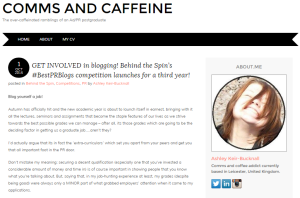In my day job, I primarily have to teach to assignments. Curiosity, interest and long-term value are secondary.
Teaching to assignments is repetitive and often involves a discussion of rules (word counts, referencing conventions etc). In truth it’s a dull business (but someone has to do it).
I’m also a mean marker. By that I don’t mean I’m particularly miserly, but that I keep an eye on averages. I’m delighted to award high marks, but they will tend to be counterbalanced by low ones as marks revolve around a mean (as well as recording the achievement of ‘learning outcomes’). Yet university administrators really don’t like low marks to be awarded: it looks bad, and is assumed to reflect bad teaching and support rather than any failing on the part of the (fee-paying) student.
Luckily, the day job’s constraints have their limits. As a volunteer magazine editor for almost ten years I’ve been able to set my own rules and to strive for different standards.
What do I have to show for this dedication? Not as much as I should, but allow me to be very proud of one achievement only.
Consistency is king
After a misfiring experiment with ranking students on their influencer metrics (#socialstudent), I came up with a better formula to identify and recognise outstanding PR students. Our #bestPRblogs contest has been running for four academic years. I don’t want to take anything away from the achievements of the three past winners (they were the best in their year) – but to me the contest has never been stronger than this year.
It’s an exercise in excellence. It rewards exceptional achievement, but is also a long-running contest that rewards consistency over sporadic brilliance. It’s a true test of PR ability.
Here’s the breakdown. To compete, a student has to:
- Have a blog, partly or wholly focused on public relations. Easy. Then they have to post consistent, quality content to their blog (the hard part) – and make sure that others know about their efforts (by using, but not abusing, social media channels).
- Be selected for my pick of the week roundup. This ran throughout the academic year. 39 students from 13 universities made it. No doubt I missed several talented student bloggers, but part of the exercise involved them finding ways to draw their efforts to my attention. Most of those shortlisted were outliers, who faced no competition from classmates at their universities. They found their own way.
- Be consistent. Those shortlisted after 24 weeks were those who had appeared most often in the weekly roundup. Some had scarcely missed a week. There’s a time and a place for brilliant, original content – but let’s not overlook the virtue of consistency.
- Be brilliant. In a crowded field where anyone can have a blog and a social media presence, how do you stand out? Here are two lessons I’ve learnt from our shortlisted student bloggers:
- Brilliant writing counts. It’s so simple really: good writing is easy to read. But what’s difficult is getting the balance between the personal and the professional.
- Quality content has value. Your blog does not demand a stream of personal anecdotes or confessions. This year, we’ve had shortlisted candidates who have been editors as well as writers. They have commissioned and published interviews with practitioners. This is doubly valuable as an exercise in networking.
The strength of the leaders this year has meant there were fewer opportunities for others to force their way into the competition. There was little space for the merely ordinary.
So, just this once, let me praise some exceptionally talented individuals. Let’s recognise excellence and out of the ordinary achievement. Far from diminishing others, our shortlisted bloggers are leading by example and inspiring others. It’s the best lesson of all.

